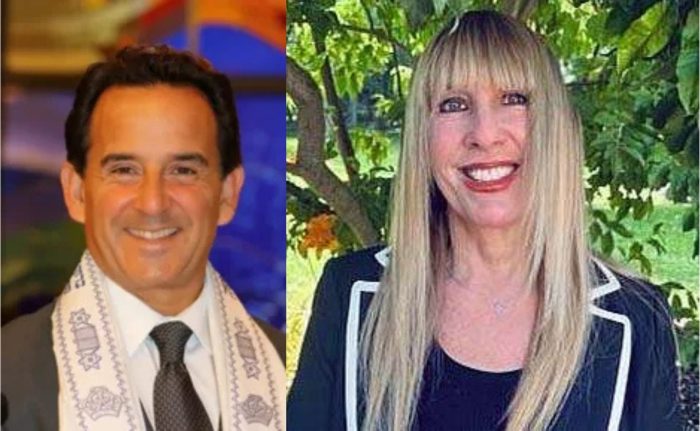Recent Jericho High School graduate Yashwin Sajja was named a top 50 finalist for the $100,000 Chegg.org Global Student Prize. This international prize recognizes the extraordinary efforts and achievements of students making change.
Sajja was chosen from 11,000 students from 176 countries for his environmental efforts and research. Sajja said he used AI technology to develop organic fertilizers and pesticide alternatives in his research.
He researched these methods with Brown University, University of Wisconsin Madison and the National Aeronautics and Space Administration. At all of these research institutions, he examined climate change and weather forecasting.
Sajja is a U.S.-born Indian American who traveled to India to visit his family members. There, he became interested in farming and agriculture.
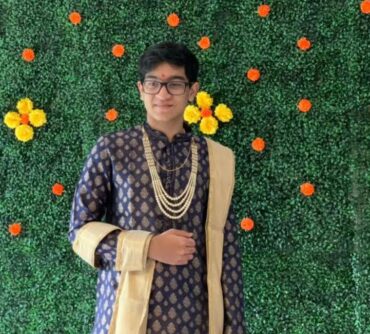
“My grandparents were farmers themselves,” Sajja explained.
Sajja lived in India for four years in his childhood and spent much time helping his grandparents on their farm.
“I became trekking land and kindling that love for nature that I now have,” said Sujja.
Once he moved back to the United States, Sujja said he hoped to continue his passion for agriculture. In school, Sujja was always interested in math and science courses, but it wasn’t until years later that he would combine these disciplines.
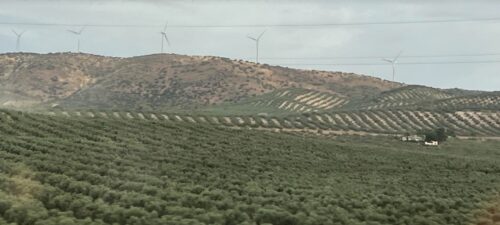
When he revisited India after his initial trip there, Sujja said, he noticed how the farming practices had changed. His family’s farm was fully organic. However, many of his grandfather’s neighbors adopted chemical fertilizers and pesticides, and Sujja saw the harmful effects first-hand, including water pollution.
“I wanted to tackle this situation head-on,” he said.
“That resulted in my interest in finding alternatives for harmful chemicals that might be produced in the agriculture space,” said Sujja.
Sujja was interested in community, which drove his research project to focus on how different cultures adopted farming practices.
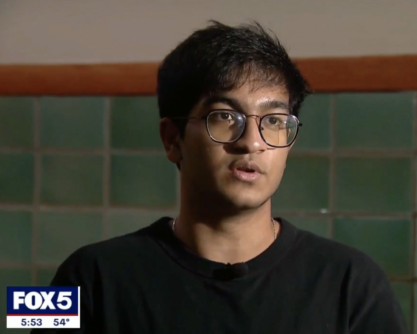
“What are the values of different farmers from across the world, and how can I adopt those values into a solution that I, myself, can find?” Sujja asked.
Sujja contacted both farmers and professors once he began his research project. His contact with so many voices allowed him to understand the problem from different perspectives.
During his research at Brown University, University of Wisconsin Madison and NASA, Sujja examined flood and hurricane prediction models. This provided him insight on climate patterns, which play a crucial role in farming practices.
“I finally came across two main solutions,” Sujja said. “One that targets pesticides and one that targets fertilizers, which makes sure that we don’t have to rely on these harmful chemicals anymore. We can rely on new practices that don’t cause harm to the ecosystems.”
Sajja has begun to talk with farmers about the implementation of these practices.
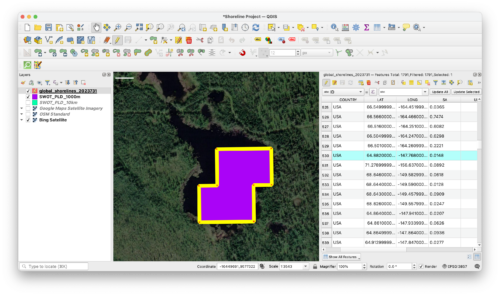
“Huge congratulations to Yashwin Sajja. Chegg not only celebrates your achievements but also the endless possibilities that exist when young minds are driven by a passion for change” said Heather Hatlo Porter, Chegg’s chief communications officer.
Hatlo Porter continued: “The top 50 Global Student Prize finalists deserve the opportunity to have their stories told and have their voices heard. After all, it is their dreams, insights and ingenuity that will illuminate a more hopeful future for everyone.”
Yashwin’s interdisciplinary approach to environmental issues showcases his dedication to the cause.
This fall, Sujja will attend Cornell University. He will study at the Dyson School of Applied Economics and Management, where he hopes to combine his interests in business and agriculture.







